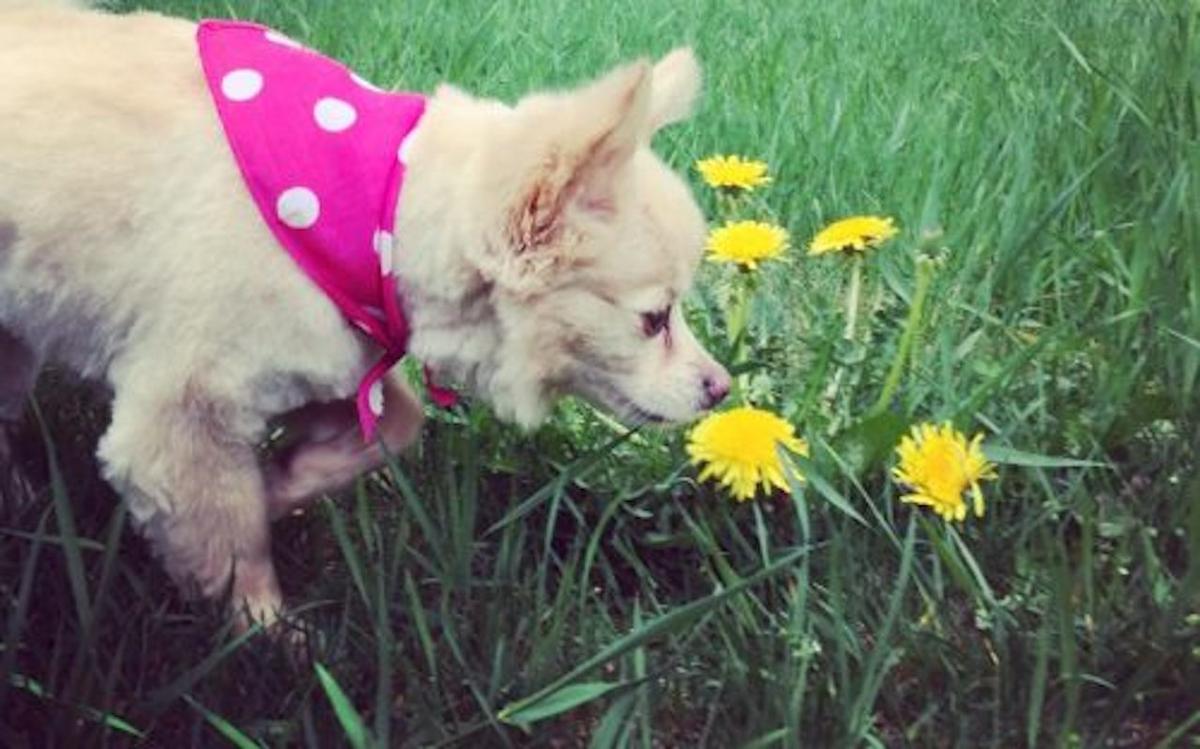One of my favorite parts about working at UMD during the summer is that I get to see dogs being walked through campus. And boy, do I see a lot of really cute dogs! One of my not-so-favorite parts about working at UMD during the summer? Stepping in dog poo. Studies reveal that about 40% of Americans don’t pick up after their dogs. In addition to being gross, pet waste on campus is a big environmental issue.
Did you know? It’s the law! In Duluth, dog-owners are required to pick up after their pets. The Animal Litter policy can be found in the Duluth Legislative Code, Sec. 6-38.
“All of this pet waste does not magically disappear,” explains the Regional Stormwater Protection Team (RSPT). “It doesn’t fertilize the lawn either, a misconception many people may use as an excuse. In fact, waste from any carnivore (meat-eater) is not usable as fertilizer. Waste from herbivores (plant-eaters), like cows, can be used as fertilizer because unused portions of their food can be returned to the soil and taken up again by plants.”
When pet waste is not picked up and not properly disposed of, it can get in our lakes and streams and cause high levels of bacteria (pathogens). This is a threat to local water quality and public health.
According to RSPT, “Pet waste contains bacteria called fecal coliform bacteria. Coliform bacteria are generally harmless and help humans and animals digest their food. However, the presence of fecal coliform bacteria can indicate the possible presence of disease-causing organisms — organisms that can make humans who drink or swim in that water sick. Pet waste can also contribute to excessive algae growth when the nutrients in the waste are released through decay.”
Where should pet waste go?
- Flush it down the toilet (be sure to pick out rocks and sticks first).
- Put it in the trash.
- Bury it in your own yard. If you want to bury pet waste, make sure it is in a hole at least 6 inches deep, away from vegetable gardens and water sources, and in permeable soil (not clay). Do not add it to compost piles.
If you need a key chain of pet waste disposal bags, stop by the UMD Facilities Management Office (Darland Administration Building 241).

The bags are courtesy of RSPT!
Click here to read more from RSPT about Pet Waste.
Also, be sure to check out their cute public service announcement on pet waste!
Have you seen a cute dog around UMD this summer? We want to see some water friendly dogs on campus!
Take a picture and share it with the UMD Office of Sustainability on Facebook, Twitter orInstagram (at @UMDSustain).
Remember to hashtag #WaterWednesday.
Note: Water Wednesday posts are written by UMD Storm Water Assistant, Charlie Johnson, who works with Facilities Management and the Office of Sustainability to help implement the UMD Storm Water Pollution Prevention Plan (SWPPP).
